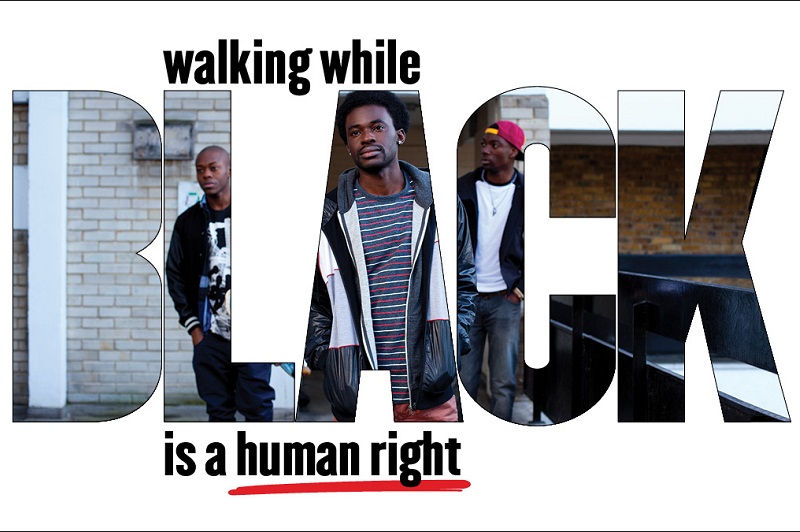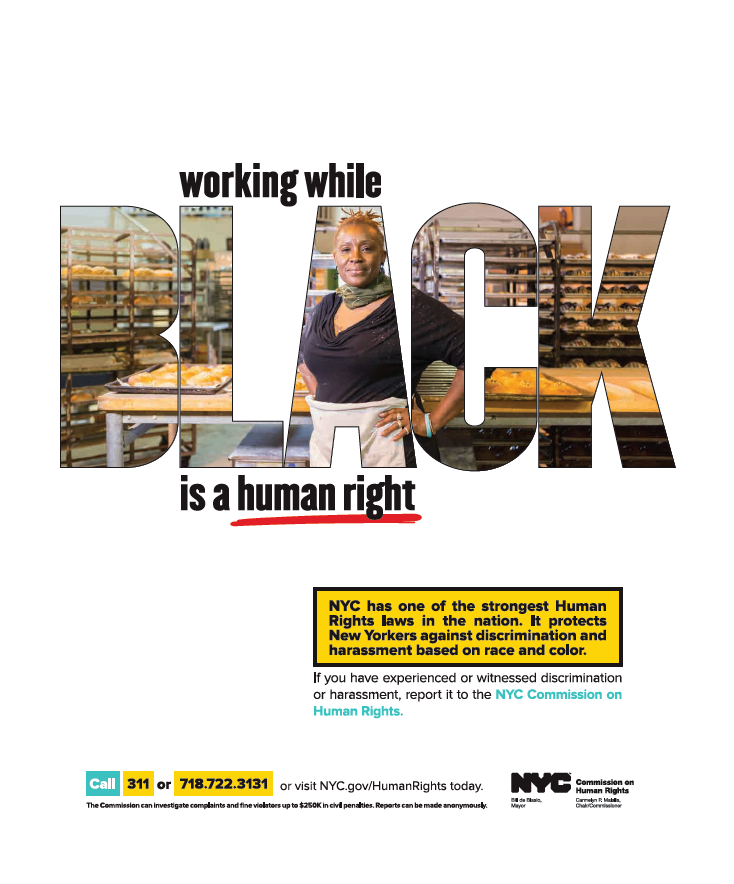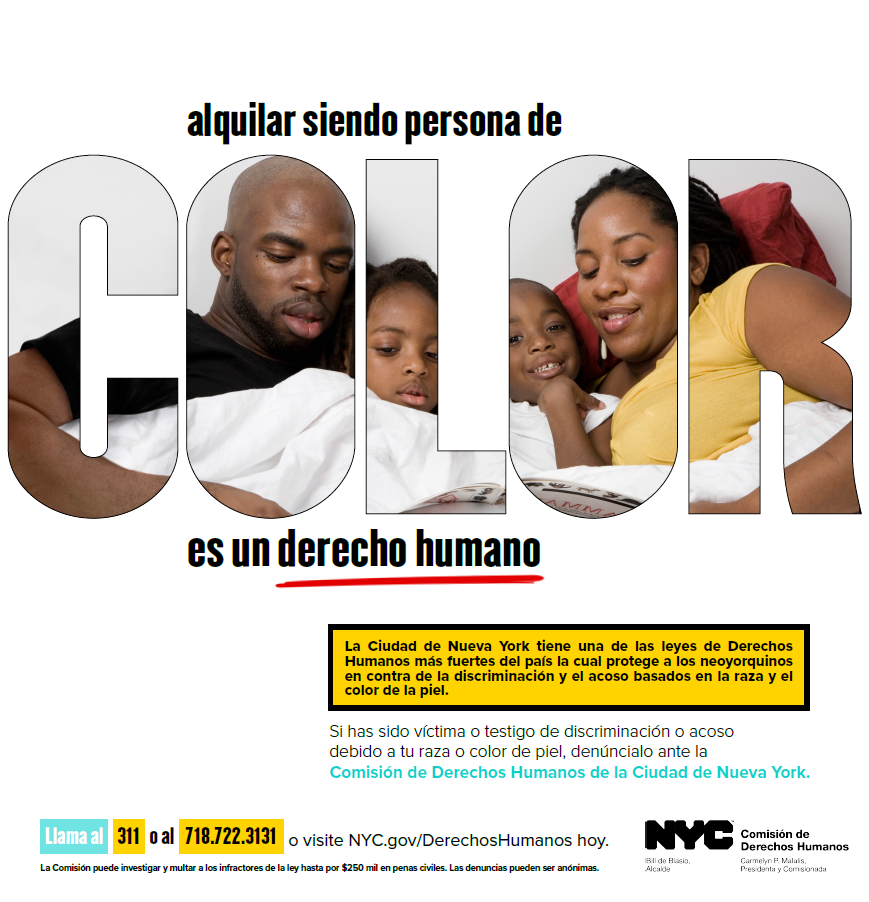
 Human Rights311
Human Rights311 Search all NYC.gov websites
Search all NYC.gov websites
While Black in NYC: Protections Against Discrimination for Black New Yorkers

The New York City Commission on Human Rights is charged with enforcing the New York City Human Rights Law, one of the most robust anti-discrimination laws in the nation. The agency is also charged with educating New Yorkers about their rights and obligations under the City Human Rights Law and fostering stronger relationships between and among members of the City’s diverse communities. As part of this mandate, the Commission also works to elevate human rights principles and values through citywide campaigns.
This campaign, entitled “While Black,” addresses some common forms of discrimination that Black people face while doing everyday activities, affirms the rights of all Black New Yorkers to live their lives free of bias, and provides information on how to report discrimination to the Commission. View Campaign Press Release.
Campaign Ads
The campaign ads make it clear to anyone who identifies as Black, including African American, Afro-Latinx, Afro-Caribbean, and African New Yorkers, that they have a right to live free from discrimination and harassment in New York City. The ads also serve to educate entities that have responsibilities, and potential liability, under the law, including housing providers, employers, employment agencies and business owners.
Click on thumbnail to see the full ad:
 |
 |
 |
 |
 |
 |
 |
 |
 |
 |
Tyrone's Story on Racial Discrimination
As part of the "While Black" campaign, the Commission is releasing the latest of its "You Have Rights NYC" Video Series, this time focusing on Tyrone, a New Yorker who was denied housing because the owner thought "all black men were criminals." Tyrone brought his case to the Commission, where he received justice. Watch his story:Commission Releases Groundbreaking Legal Guidance
The launch of this campaign comes on the heels of the release of the Commission’s groundbreaking legal guidance on race discrimination and hair in employment and public accommodations, which identifies discrimination based on natural hair and hairstyles most commonly associated with Black people as racial discrimination. The release of the guidance in February 2019 resulted in national and international public and media attention, and resulted in other jurisdictions developing their own guidance. See Legal Guidance Press Release.What To Do If You're Discriminated Against
Due in part to its long-history, anti-Black racism often hides in plain sight and goes unrecognized, particularly by those for whom it is not part of everyday lived experience. Widespread discomfort around acknowledging anti-Black racism also allows it to persist. Hence, the Commission wants to call it out with this Citywide campaign.
The NYC Human Rights Law has one of strongest protections against harassment and discrimination based on race and color in the nation. The Commission received 584 race-based complaints in Fiscal Year 2018 and saw an overall 20% increase in complaints since 2016.
If you have experienced discrimination, we can help. Contact the NYC Commission on Human Rights at (212) 416-0197 or use this online form to report your case. Whether in employment, housing, or places of public accommodations, if you have faced discrimination because of who you are, let us know about it. You can even do it anonymously and we never ask about your immigration status.
Still have questions?
Watch this helpful video for an overview of the reporting process so you can have a thorough understanding of the Commission's work in investigating acts of discrimination in New York City.
Scenarios to Help You Identify Discrimination
- A landlord tells a prospective Black tenant that he or she cannot be added to the lease, but allows other white people to be added to theirs.
- A student is called racial slurs at school, but school leadership refuses to take action.
- A manager of a restaurant tells black patrons to pay for their order ahead of time, but does not treat non-Black patrons as such.
Helpful Links
Discriminatory Harassment
Bias-Based Profiling
Public Artist-in-Residence Project
Join the conversation by using #WhileBlackNYC


